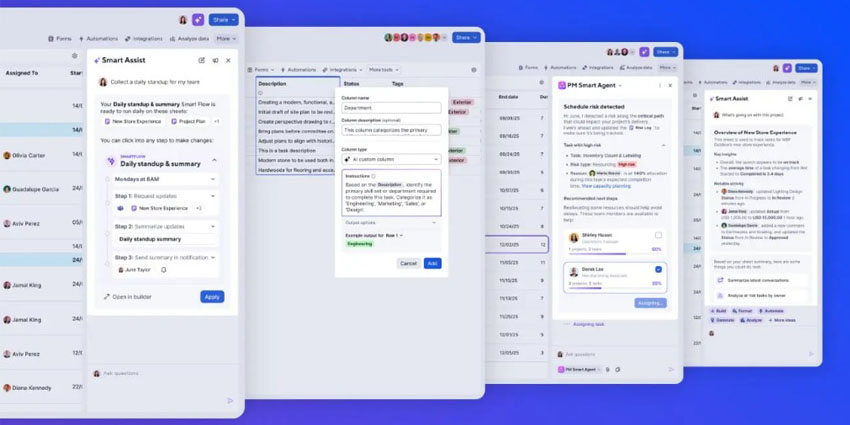A new study suggests that over four-fifths of global workers feel more productive while working in hybrid or remote environments rather than in the office.
Research from Zoom and Reworked INSIGHTS, titled “Navigating the Future of Work”, has been released. The study has several compelling findings illustrating the evolving nature of work and the dominance of hybrid work as the new normal. Additionally, the research outlines how hybrid work might evolve and offers ideas for how organisations can best prepare by investing in hybrid technologies and sophisticated best practices.
The Navigating the Future of Work report reads:
As hybrid work becomes the dominant model, leaders must embrace flexibility, adapt to employees’ changing preferences, and invest in better DW technology and AI solutions. This will help leaders improve productivity and the overall employee experience and better prepare them for long-term success. With the right strategic foresight, leaders can thrive in this new world of work.”
In addition to the eye-catching figure of 84 percent of workers saying they feel more productive in hybrid or remote work, 82 percent of hybrid workers feel more connected to their teams and managers, signalling that workers feel the benefits of the structure extend beyond productivity and flexibility.
84 percent of leaders who responded to the study said increasing productivity was their top priority when deciding the best working structure for their organisation. However, only 64 percent of leaders said they abide by a hybrid model. This suggests there is still some work to do to align workers’ and leaders’ views around hybrid work and its benefits for productivity, flexibility, and colleague and manager relationships, as well as its potential limitations.
The Future Of Work
Zoom and Reworked INSIGHTS outline that even as organisations settle into various hybrid models, three-quarters of leaders believe it’s very or moderately likely that their organisation will change its working style in the next two years.
The survey also revealed that 82 percent of leaders plan to make their working styles more flexible in the near future. Over the past two years, leaders overwhelmingly report that their working styles have become more flexible for employees, with 50 percent saying it’s become much more flexible and 45 percent saying it’s become slightly more flexible.
Figures On Gen AI Adoption
Zoom and Reworked INSIGHTS’ survey revealed that employees have noticed significant flaws in their digital workplace environments. Three-quarters of workers believe their organisation’s current tools and technology for remote work need improvement, and 72 percent agree that new tools or technologies are necessary to support remote working.
Gen AI is expected to have a substantial impact on the future of work. While leaders and employees differ on their current views on AI’s successes and limitations, both groups acknowledge that this technology is integral to the future. According to the survey, 94 percent of leaders use AI in their organisations, and 84 percent report that integrating AI has positively impacted productivity. By slight contrast, 64 percent of employees strongly or slightly agree that generative AI makes it easier to do their job.
Regional Differences
The survey underscored the global trend of workplace flexibility, but it also revealed that social and cultural norms significantly influenced the results. In Western Europe, 75 percent of leaders have adopted a hybrid working model, compared to the global figure of 64 percent, and 77 percent of knowledge workers report increased productivity in hybrid or remote settings compared to in-office environments.
However, despite their preference for flexibility, Western European knowledge workers are the least interested globally in fully remote work, with only 43 percent expressing interest, compared to 56 percent in North America and 49 percent in APAC.
In the APAC region, 58 percent of organisations have embraced a hybrid working model, and a notable 83 percent of employees claim they are more productive in hybrid or remote settings than in-office.
Additionally, 81 percent of employees believe that the tools and technology their organisation currently uses for remote work need improvement, and 78 percent agree that new tools or technologies are necessary to support remote working effectively.
Zoom CEO Calls Out Vendors Charging ‘A Lot’ For AI Features
Last week, Zoom celebrated AI’s impact across its portfolio in its latest earnings call at “no additional cost” while calling out “other vendors who have to charge the customer a lot”.
During the Q2 FY24 earnings call, Zoom’s CEO, Eric Yuan, highlighted the integration of AI Companion features across the company’s suite of collaboration services, including the new Workplace solution and Zoom Contact Center. Yuan emphasised Zoom’s extensive AI user base and hinted at the company’s shift into the “2.0 phase of AI-enabled work”.
A key aspect of Zoom’s AI Companion value proposition is that it comes at “no additional cost” for customers with paid Zoom licenses—a policy that will continue into the 2.0 phase. Yuan was eager to distinguish Zoom from competitors who charge for AI features.
“I want to share with you that our customers really like Zoom AI Companion,” Yuan said in response to a Q&A question about AI Companion’s most common usage. First of all, it works so well. Second, it is at no additional cost, not like some other vendors who have to charge the customer a lot.”







